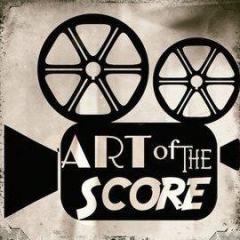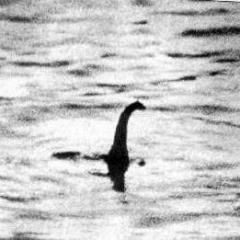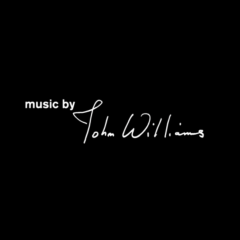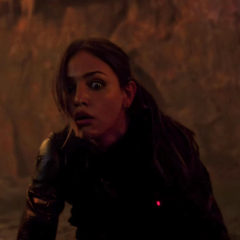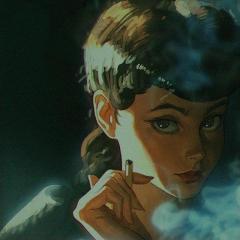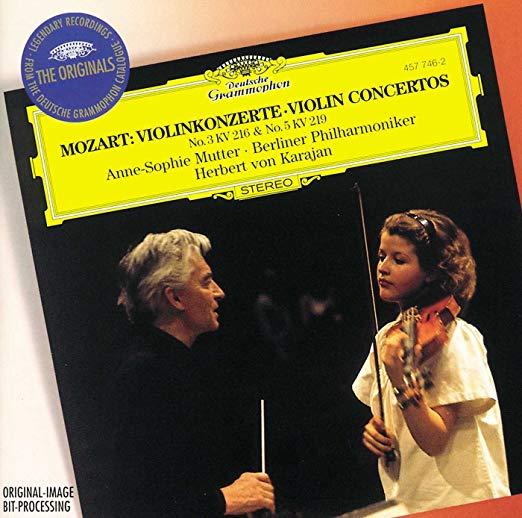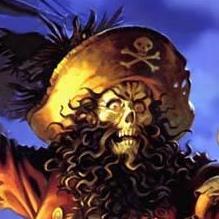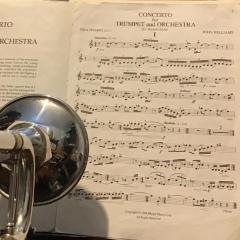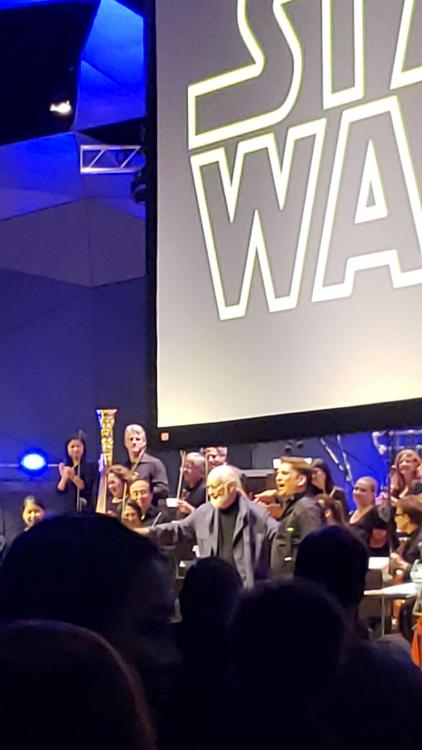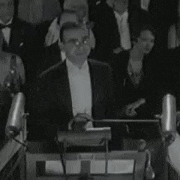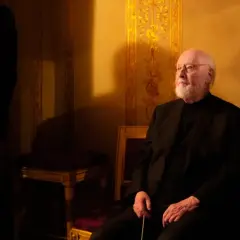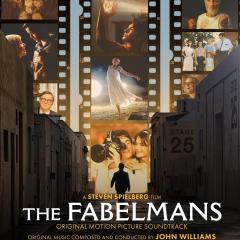Leaderboard
Popular Content
Showing content with the highest reputation on 19/08/19 in all areas
-
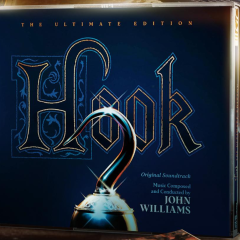
What Is The Last Film You Watched? (Older Films)
bollemanneke and 2 others reacted to Jay for a topic
The most important prior movies that Endgame references most heavily are: Captain America 1 (The First Avenger) Avengers 1 (The Avengers) Thor 2 (The Dark World) Guardians of the Galaxy 1 Thor 3 (Raganarok) Avengers 3 (Infinity War) other movies that set up important things in Endgame Captain America 2 (Winter Soldier) Avengers 2 (Age of Ultron) Captain America 3 (Civil War) Doctor Strange Ant-man and the Wasp other movies that wouldn't be a bad idea to watch before Endgame Iron Man 1 Thor 1 Ant-man the MCU movies that are the LEAST important to see before Endgame Incredible Hulk Iron Man 2 Iron Man 3 Guardians of the Galaxy 2 Spider-man Homecoming Black Panther Captain Marvel3 points -
@crumbs Hey! So sorry for the continued delay. We actually have it recorded already (not surprisingly) but we have found it impossible to get it mixed/completed due to work commitments. Dan and Nick, for instance, have been travelling for work almost constantly since Part 1 of Empire came out. Myself, I've been neck deep in shows for work that I haven't got around to it as well. But! We have some others in the can now: - A live recording of a talk we gave for the Melbourne International Film Festival on the film music of Nick Cave and Warren Ellis - A *different* type of episode where we asked one of the composers we analysed to listen to "their" episode and then they talk us through piles of music that never made it into the score. Less an interview and more a dive into the creative process. - And, after Part 2 of Empire, we have another film lined up. This time an animated feature that has been requested a bunch. Plenty to come before the end of the year! Re: TLJ live to picture - Yes! (and i'm impressed you know the places that they are sourced from) I'm currently trying to find a spot in our season to put it on. This title was announced to the orchestras really late, and my planning is so far ahead, that i'm finding it difficult to get it in. To tie you over however, can I suggest that you head along to our Return of the Jedi live shows in November? Should be a blast! I'm even trying to get a Jabba funk band to play in the foyer as the "cantina" band. Fingers crossed!3 points
-

What is the last piece of classical music you listened to?
Fabulin and one other reacted to Dixon Hill for a topic
I had another Franz in mind - Schmidt - but Schreker is apt too.2 points -

What Is The Last Film You Watched? (Older Films)
bollemanneke and one other reacted to Jay for a topic
Pretty much, unless you watch Thor 2 next :p2 points -
No, it can be extra tracks. There’s nothing strange about this DE of Across The Stars - except that Han Solo & The Princess and The Devil’s Dance are missing!2 points
-
I was watching this this morning and searched to see if anyone had posted it on the forum. What a great time capsule and exactly what Youtube is best used for, as an archive for this kind of material.2 points
-
I agree with @Holko. LP era Williams is superior to CD era Williams when it comes to OST presentations.2 points
-
John Williams at Star Wars live-score concert at Tanglewood
JWMike and one other reacted to Tanglehead for a topic
Long-time lurker (since 2006!), first-time poster here. Keith Lockhart and the Boston Pops orchestra performed the live score to the original Star Wars on August 16, 2019 at Tanglewood in Lenox, Massachusetts. John Williams was in attendance and made an appearance on stage at the end of the performance. The Pops did a great job with the musical accompaniment. I’m a long-time fan of the score and the movie (as a kid, I saw the film more than 40 times in theaters!), and I was very impressed. Lockhart was visibly tired at the end of the first half and at the film’s conclusion. Here are some videos, shot off one of the large screens facing the lawn crowd. The picture is sometimes off-kilter (I wasn’t looking through my phone as I shot it), but it will give you an idea of how it sounded. It’s also interesting to see where the split up the film for the intermission. (As an interesting note, the Pops did not perform the music in the cantina sequence.) As a Berkshire County resident, I’ve been lucky enough to meet Williams a few times, most recently at Tanglewood. He was there walking the grounds one evening, before a concert with which he was not associated, and I got a picture with him. Clearly he enjoys just being there. He was in good spirits and seems in good health. SW1.MOV SW2.MOV SW3.MOV SW4.MOV SW5.MOV SW6.MOV2 points -
The best suggestion I saw was Hour of the Gun. Our own Yavar.2 points
-
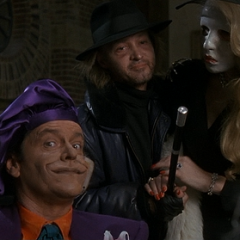
OBI-WAN KENOBI (Disney+ series)
rpvee reacted to Gruesome Son of a Bitch for a topic
https://variety.com/2019/tv/news/obi-wan-kenobi-series-ewan-mcgregor-disney-plus-1203304387/ Return of the Jedi.1 point -

What Is The Last Film You Watched? (Newer Films)
Not Mr. Big reacted to Gruesome Son of a Bitch for a topic
Batman v Superman has it's good elements (Bruce Wayne and Alfred) and it's bad ones. Unfortunately, the bad parts are nearly everything else.1 point -
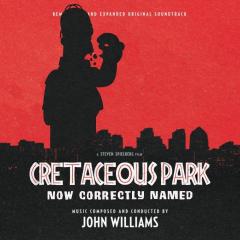
ACROSS THE STARS - Williams / Mutter collaboration album
bollemanneke reacted to rough cut for a topic
Nah, it’ll be on the Ultimate Edition. You’ll get a code when you buy it, so you can download it as mp3 (but just an edit, not the full arrangement).1 point -

What Is The Last Film You Watched? (Older Films)
bollemanneke reacted to Jay for a topic
@Quintus, Iron Man 3 is one of the very worst MCU films, without question1 point -
You bet you are ass mate?1 point
-
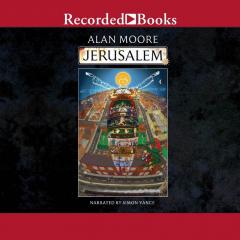
ACROSS THE STARS - Williams / Mutter collaboration album
Bespin reacted to #SnowyVernalSpringsEternal for a topic
And has collectable covers, with embossing!1 point -
With the 2-or 4-side fragmentation, there may have been more motivation to create satisfying mini-structures for each side, while many later OSTs feel haphazard, choppy, seemingly randomly out of order for the sake of being out of order.1 point
-
1 point
-
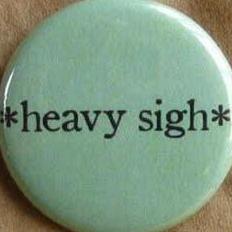
What Is The Last Film You Watched? (Newer Films)
Nick Parker reacted to Sweeping Strings for a topic
That's a fair point. Done.1 point -
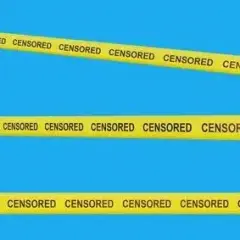
ACROSS THE STARS - Williams / Mutter collaboration album
_deleted_ reacted to Jurassic Shark for a topic
In my experience, deluxe refers to anything they've done to sell basically the same product one more time.1 point -

James Bond is better than everything
Bespin reacted to #SnowyVernalSpringsEternal for a topic
Fuck off, I'm hungover!1 point -
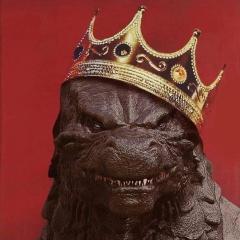
PLANET OF THE APES - Film Series 5CD box set from La-La Land Records (2019)
rough cut reacted to Unlucky Bastard for a topic
You people are so critical of everything1 point -
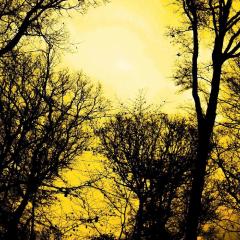
PLANET OF THE APES - Film Series 5CD box set from La-La Land Records (2019)
Yavar Moradi reacted to Brundlefly for a topic
@Yavar Moradi, I have to agree with you on Beneath the Planet of the Apes. It is a real chore to listen to and I had the impression that it was an attempt to recreate the weird character of the first score, but it ended up in little more than a stack of weirdness. Now listening to the first score: Impressive as always, but much more enjoyable now.1 point -

James Bond is better than everything
Bespin reacted to #SnowyVernalSpringsEternal for a topic
Picard_Facepalm.gif1 point -
Here's the program for the Bowl concert: John Williams’ history with the Hollywood Bowl is legendary. This year, our beloved master of cinematic scores introduces a memorable evening of his movie music to be conducted by his colleague and friend, maestro David Newman, including some selections performed with film clips. It’s an unforgettable concert you won’t want to miss! Program WHITING, arr. John WILLIAMS : “Hooray For Hollywood” from Hollywood Hotel John WILLIAMS : Overture to The Cowboys John WILLIAMS : Two Selections from Jane Eyre John WILLIAMS : “Han Solo and the Princess” from The Empire Strikes Back (with film) Alfred NEWMAN : 20th Century Fox Fanfare Alfred NEWMAN : Theme from How the West Was Won (with film) Richard RODGERS : “The Carousel Waltz” from Carousel Film Score Suite Intermission John WILLIAMS : Theme from Star Wars: Galaxy’s Edge John WILLIAMS : Opening Sequence from E.T. the Extra-Terrestrial (with film) John WILLIAMS : Excerpts from Jurassic Park (with film) John WILLIAMS : Excerpts from Saving Private Ryan (with film) John WILLIAMS : “Dry Your Tears, Afrika” from Amistad John WILLIAMS : “The Adventures of Han” from Solo: A Star Wars Story John WILLIAMS : “Luke and Leia” from Return of the Jedi John WILLIAMS : Star Wars Main Title https://www.hollywoodbowl.com/events/performances/794/2019-08-30/maestro-of-the-movies-the-music-of-john-williams Some interesting choices! Lovely to see Jane Eyre and also pieces by Alfred Newman (including Carousel, which was one of JW's first orchestrating gigs). JW is listed only as a "host", but If I were a betting man, I'd put some money on him conducting at least several selection in the second half.1 point
-

Sheet Music from original Star Wars
BrotherSound reacted to Gruesome Son of a Bitch for a topic
I spent my life savings on it back in 2005.1 point -
The Official Intrada Thread
bollemanneke reacted to Yavar Moradi for a topic
Jane Eyre original album is not a re-recording. 6 tracks are film cues and 5 were arranged and recorded specifically for album, at the same sessions. Similar to ET. If it’s a Goldsmith it’s almost certainly Hour of the Gun I think. I believe there are a couple Bernstein and Barry scores that might also fit what we know too, though. Yavar1 point -
Once Upon a Time in Hollywood Less a film, and more of a loose series of self-masturbatory vignettes of late-60s Hollywood. And while you can usually rely on Tarantino's over-indulgence to at least offer an entertaining romp, I don't think it's ever been so painfully obvious that a bunch of scenes were assembled together just to remind us how "cool" hippies on acid, hitch-hiking Manson gang members, neon signs, vintage cars and old TV Westerns were. Every now and then, you get a glimpse at a Tarantino that might have finally grown up (some of DiCaprio's existential crisis showed surprising maturity), though it's quickly undone by its predictable finale. Anyways, the film just really lacks structure and rhythm, which robs it of its potential for meaning. It had some good scenes (i.e. the Manson ranch scene with Pitt) and captures seedy Hollywood of the time well, but ends up coming across as much ado about nothing.1 point
-

What Is The Last Film You Watched? (Older Films)
SteveMc reacted to The Illustrious Jerry for a topic
Mission: Impossible The Mission: Impossible series certainly has its highs and lows, but between each and every one of the six installments thus far there's a general sense of top secret fun. Being a spy is the next coolest thing to being a Jedi, at least from my memories of childhood (although I was quite fond of cowboys too!). I had previously seen bits and pieces of this series, but I'd never given it my full time and attention. Over the past two weeks I buckled down and swept through them all at my convenience, and I had a very good time. The first film is probably the best, at least from a critical standpoint. If you're looking for the most popcorn worthy I'd certainly place my vote with Rogue Nation, although all of the last three are very much in the same vein. The second is the one most people dislike, and while it has its flaws and pluses, it's not half bad. There's something to be said for Woo's contrasting techniques- one of chaotic action and the other of extended sequences of slow motion. The latter can be frustrating, especially it almost draws out an otherwise normal scene to the point of laughable melodrama. And then there's his trademark dove (that was interesting). With the third movie, Abrams lens flares can be quite deterring. With Bird and then McQuarrie, there's a fine balance of action and espionage, the mark that the series may have found its true character. The first film is espionage, the second is action, the third gains some balance, and the final three strike it so very well. Predictability isn't really a problem for me here. And the action sequences and (ahem) stunts are terrific. Like, really good! I was also on board with most of the characters, especially the main crew of Benji, Luther, and of course Ethan. In a nutshell, the first is generally a great movie, the second is an acquired taste, the third attempts to find footing for the franchise, and the most recent three are splendid popcorn action flicks. My rankings are listed below. In this case I just went by my favourites, which is not neccesarily the same order as it would be from a critical standpoint. Score 1. Rogue Nation 2. M:I 3. M:I III 4. Ghost Protocol 5. Fallout 6. M:I II Film 1. Rogue Nation 2. M:I 3. Fallout 4. Ghost Protocol 5. M:I III 6. M:I II1 point -

JURASSIC PARK - Live to Projection Concerts
The Illustrious Jerry reacted to dogplant for a topic
Here's a blurb I posted this morning, at Film Score Monthly, about the Hollywood Bowl concert of Jurassic Park. Wrote this before discovering this thread; now edited my copy/paste, to focus on my main query: I had the pleasure of experiencing "Jurassic Park" with, I estimate, maybe 15,000 people at The Hollywood Bowl where the phenomenal crusader of film music David Newman conducted the LA Philharmonic playing John Williams' score live to picture Friday evening. It was terrific fun. I know, more recently, there have been many older live-to-picture shows – "The Wizard of Oz" (1939), "Casablanca" (1942), "Vertigo" (1958), "Psycho" (1960), "West Side Story" (1961), "Silent Running" (1973), "Jaws" (1975), "Close Encounters" (1977) and soon we will getting "Superman: The Movie" (1978).... So, how do they do that? Wikipedia says projection material is prepared with 'music suppressed,' but that sounds like hand-waving to me. In my experience, movies are not made that way. No one had any reason to make a music-free mix of their film, back in the day. What would be the point? And surely all the audio stems would have been long lost, resulting in most cases in mono magnetic or optical audio tracks, which would surely be impossible to pull apart. Bravo to all involved in producing these events, all over the world: https://filmconcertslive.com And what a phenomenal job David Newman does. He is a marvel. TL;DR edit: How do older films create music-free audio as playback for live orchestral performance?1 point -

What Is The Last Film You Watched? (Older Films)
SteveMc reacted to Gruesome Son of a Bitch for a topic
Apocalypse Later?1 point -
Music isn't a competition! At the technical level of Mutter and Perlman it’s just taste and interpretation1 point
-
Great to hear. You have no idea how listening to your podcasts makes my working hours that much more enjoyable. Terrific work1 point
-

JW's Worst OST Decisions
Unlucky Bastard reacted to Gruesome Son of a Bitch for a topic
Anyone else like JW's OSTs?1 point -
Jaws 2 is only worth it for the (fantastic) score, I hated that movie. Not even bad enough to enjoy ironically. Why John Williams Is Great:1 point
-
1 point
-
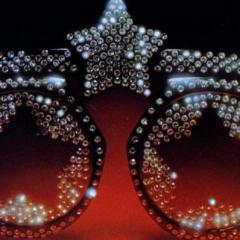
JW's Worst OST Decisions
Kasey Kockroach reacted to Nick Parker for a topic
I really appreciate the novelty of the conversation happening on this page right now. There are tons of compelling arguments that are sure to change the other side's minds, I'm certain. To answer the thread title, the one I always felt worst about was how the Jurassic Park album didn't end with the End Credits. After the whiz-bang intensity of the T-Rex Rescue, I thought it would be really nice to have a contrasting tranquility that the solo piano provides. A simple sequencing fix, but I wonder what prompted the decision.1 point -
The Leonard Rosenman Thread
Sharkissimo reacted to Lewya for a topic
It is extremely rare that a film composer receives this kind of attention from leading concert composers, so Rosenman must have done things right. Both John Adams and John Corigliano are fans of him, especially of East of Eden and Rebel Without a Cause with Adams favoring the latter and Corigliano the former. Rosenman himself considered East of Eden his best score. Here is what John Adams wrote about Rosenman in liner notes in the East of Eden and Rebel Without a Cause recording he conducted: Leonard Rosenman is an important transitional figure in the history of film music: a highly skilled composer whose best work evolved during a critical period between that of old school Europeans like Max Steiner and Dimitri Tiomkin and that of the later, more pop-oriented composers of the 60s, 70s and beyond. Rosenman was doubtless one of the most thoroughly schooled musicans ever to work in Hollywood. Before making an acquaintance of director Elia Kazan in New York in 1954, he studied composition and theory at the University of California, Berkeley with Roger Sessions, the most serious of all serious composers. He was thoroughly familiar with all the latest modern techniques in the works of Stravinsky, Bartók and Schoenberg. Most importantly, he possessed one thing Sessions lacked: the common touch, an ability to mirror the American vernacular experience in his music. This was an essential ability for anyone hoping to make a successful foray into commcercial film music. East of Eden, Rosenman's first score was an ideal vehicle for his talents. The John Steinbeck story combines homespun simplicities of mid-century American social realism with the darker, more symbolic themes of filial disobedience and Oedipal search for his the lost mother. Set among the lush and irresistible beauty of the northern California coast, this 1955 film took the young James Dean into almost instant celebrity in the role of the tormented, misunderstood and unappreciated brother and son. The story, with its consciously Old Testament motifs acted by an ensemble of exceptionally gifted performers, including Julie Harris, Raymond Massey and Burl Ives, is one of the better examples of what a major Hollywood film could achieve. Rosenman's score is, when required, appropriately evocative of a "simple" American past (the story takes place during World War I). He utilizes both the widely spaced harmonies and simple diatonic tunes made famous by Copland, but Rosenman's ideas are never whole-cloth borrowings. His music has its own originality. The famous "Main Theme" with its innocent, almost childlike 3/4 lilt is one of the most memorable melodies in all American cinema. The music matches the qualities of Steinbeck's prose with uncanny exactness, at one moment being simple and plainspoken to the point of rusticity, and then modulating abruptly to a suppressed brooding that is far more sophisticated and self-aware than any earlier example of music for the screen. Written a year later, Rebel Without a Cause was musically even more successful, although the film, with its portrayal of misguided, troubled American youth, lacked the depth and richness of the Steinbeck story. While East of Eden was a period piece evoking for the American viewer an already lost idyllic past, Rebel Without a Cause was harshly contemporary and showed a strong influence of film noir in its treatment of the subject and characters. It may well be the film that created the whole "Fifties" stereotype, with its pompadour male hairstyles, car fetishes, and gangs of disaffected teenagers given to casual violence and unable to communicate with their uncomprehending elders. It is perhaps not insignificant that his film predates the premiere of West Side Story by two years. For the film, which provided another starring role for James Dean and an early appearance by all-too-worldly Natalie Wood, Rosenman created a complex score that moves effortlessly between the urban big band jazz of Stan Kenton and the moody atmospheres of Bartók and Stravinsky. Bartók's Music for Strings, Percussion and Celesta, hardly known to the general public in 1955, makes a particularly evocative model in film's "planetarium" scene, during which the 50s' newfound preoccupation with outer space and extraterrestial events is eerily worked into the film's existential themes. The fractured rhythms and polytonalities of Stravinsky's Rite of Spring are felt in the scenes of violence and terror, although here, as elsewhere, Rosenman never loses his own original voice. Unlike many a lesser film composer, Rosenman managed to avoid resorting to hasty pastiche or overt borrowing. The two scores show what could actually be achieved when a skilled composer and a director sensitive to the powers of music were allowed to work together under conditions of artistic freedom, unimpeded by the crush of market forces - a rare moment in an industry in which art and money always maintain a difficult equipoise. - JOHN ADAMS During Sunday's pre-concert talk, conductor John Adams – who recorded Rosenman's East of Eden and Rebel Without a Cause suites for Nonesuch in 1995 – described the composer as "one of the most important, skilled and knowledgeable of all film composers." "Adams took the microphone during the concert to extol Rosenman's virtues, calling him a "sophisticated composer" who helped to bring "psychological depth" to 1950s films like Rebel Without a Cause." John Corigliano: "East of Eden with Leonard Rosenman's music, is a great film on every level. It's like a combination of Berg and Barber and it's beautiful, and it has a simple American melody also of pure innocence. That score is great. It's so powerful, and in addition to that highly chromatic and nervous, wonderful sinewy beauty he also has an innocence like Copland. It should have a symphonic version played by major orchestras".1 point -

Why do people hate Rosenman's score for Star Trek IV The Voyage Home.
Fabulin reacted to Brundlefly for a topic
A classic example of somebody who's got no clue acting like he's got a clue. A classic example of somebody mixing up his own very affective opinion with actual quality.1 point -
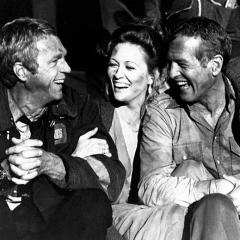
Why do people hate Rosenman's score for Star Trek IV The Voyage Home.
Naïve Old Fart reacted to MikeH for a topic
1 point -
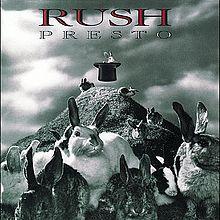
Why do people hate Rosenman's score for Star Trek IV The Voyage Home.
Sharkissimo reacted to Naïve Old Fart for a topic
Ok, this is a tricky one. IV seems to be the Marmite score of STAR TREK, and not without good reason. While I generally like Rosenman's "atonal" stuff (BENEATH THE PLANET OF THE APES; FANTASTIC VOYAGE), I really don't think that it works, here. IV is a conventional fish-out-of-water yarn, set to a science fiction backdrop, with a firm ecological message - "learn to respect the planet, or else mankind will die". Added to that, there's an almost-romance, some nice character moments, and, behind the camera, great (and Oscar nominated) photography and sound. Then there's the music... With so many elements, and mini-stories, it needed the score to pull all of it together. Taken on their own, the cues are set-pieces, rather than parts of a cohesive whole. There's no "journey" to go on, no "story" that the music tells. It's just "there". Still that didn't stop Rosenman earning himself an Oscar nod, and the film becoming the most successful STAR TREK film ever released. Somebody did something right. Taken on face value, I like it, but I can't help thinking that IV would be a much deeper and richer film if Nimoy had swallowed his pride, and allowed Horner to complete his TREK trilogy. Ps, I'm with @Thor: MARKET STREET is the best track on the CD.1 point -
I always nearly get chills watching Williams conduct this at the ceremony. A beautiful sight. Looks like a wonderful ceremony.1 point

